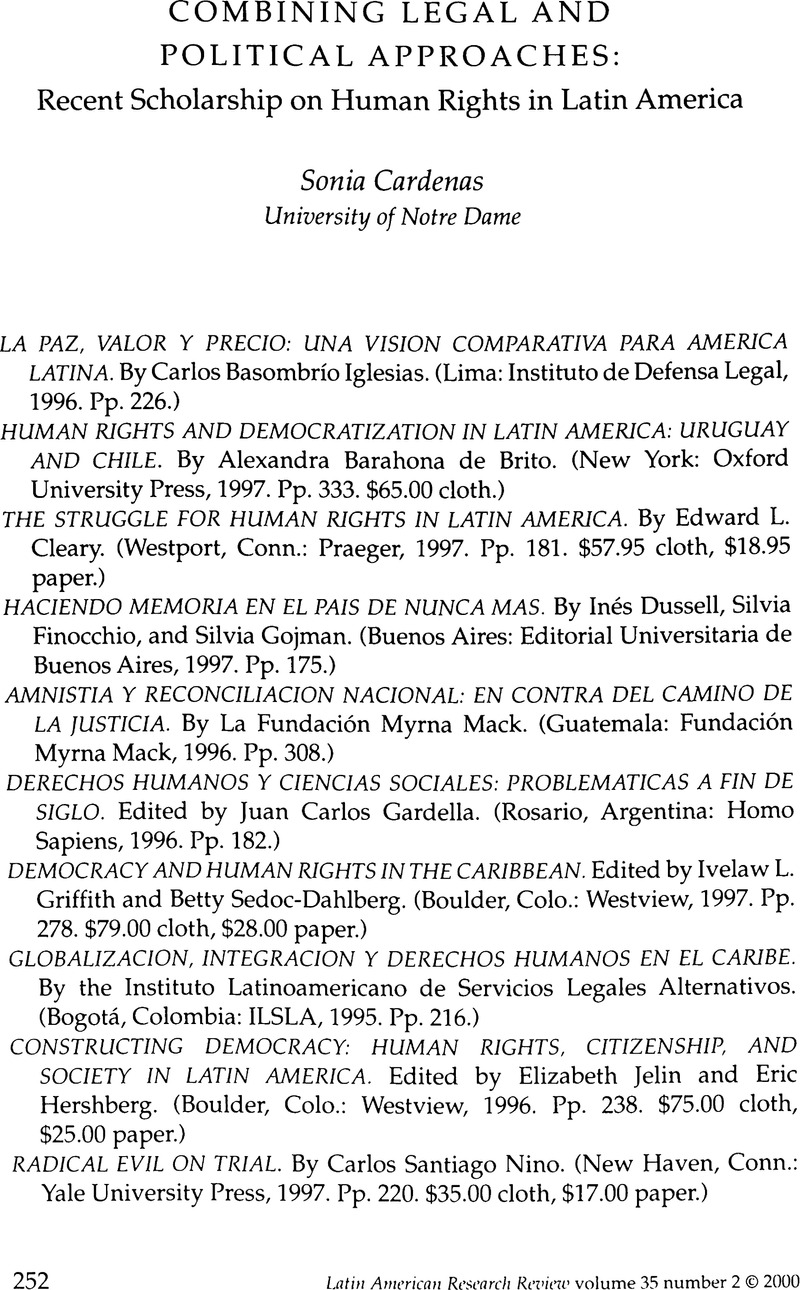Published online by Cambridge University Press: 05 October 2022

1. A study that examines the role of ideology in explaining state repression is David Pion-Berlin, The Ideology of State Terror: Economic Doctrine and Political Repression in Argentina and Peru (Boulder, Colo.: Lynne Rienner, 1989). For a bibliographic guide to research on human rights in Latin America in the 1980s, see Steven Perkins, “Latin American Human Rights Research, 1980–1989: A Guide to Sources and a Bibliography,” Denver Journal of International Law and Policy 19 (1990):163–267.
2. For works that review recent institutional approaches, see chaps. 4–7 in A New Handbook of Political Science, edited by Robert E. Goodin and Hans-Dieter Klingemann (New York: Oxford University Press, 1996); and Thomas A. Koelble, “The New Institutionalism in Political Science and Sociology,” Comparative Politics 27 (Jan. 1995):231–43.
3. See also Transition to Democracy in Latin America: The Role of the Judiciary, edited by Irwin P. Stotzky (Boulder, Colo.: Westview, 1993).
4. Garretón alludes to this dilemma in his contribution to Constructing Democracy.
5. Another recent critique of conceptualizing trials on human rights in terms of deterrence is provided by Jaime E. Malamud-Goti in Game without End: State Terror and the Politics of Justice (Norman: University of Oklahoma Press, 1996).
6. See for example Diane F. Orentlicher, “Settling Accounts: The Duty to Prosecute Human Rights Violations of a Prior Regime,” Yale Law journal 100 (1991):2539–69.
7. On the issue or impunity, see also Impunity in Latin America, edited by Rachel Sieder (London: Institute of Latin American Studies, 1995).
8. The social movement literature is extensive. Recent examples include Joe Foweraker and Todd Landman, Citizenship Rights and Social Movements: A Comparative and Statistical Analysis (Oxford: Oxford University Press, 1997), which focuses on Brazil, Mexico, Chile, and Spain. See also Alison Brysk, The Politics of Human Rights in Argentina (Stanford, Calif.: Stanford University Press, 1995). A review of the literature is provided by Paul Lawrence Haber in “Identity and Political Process: Recent Trends in the Study of Latin American Social Movements,” LARR 31, no. 1 (1996):171–88.